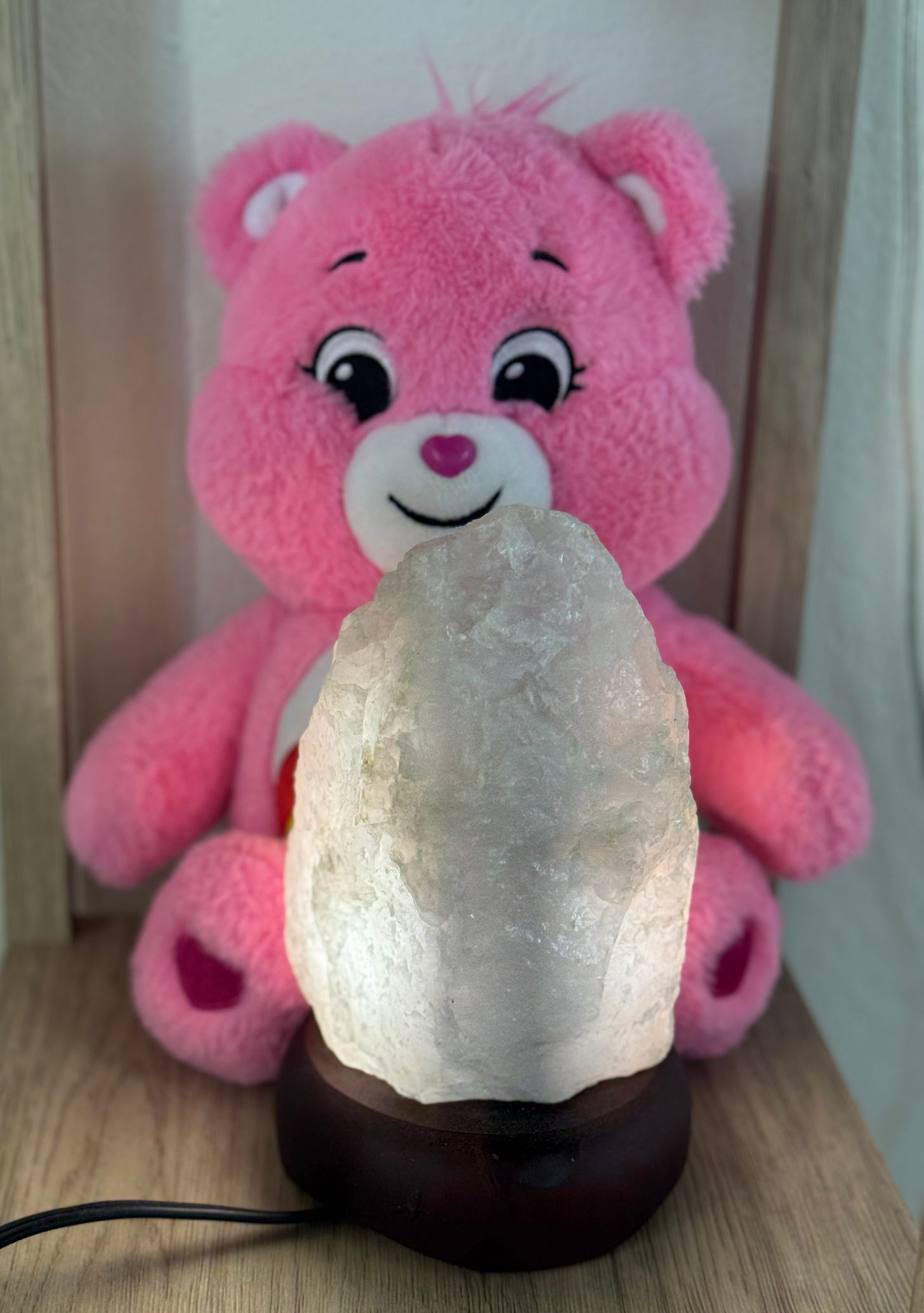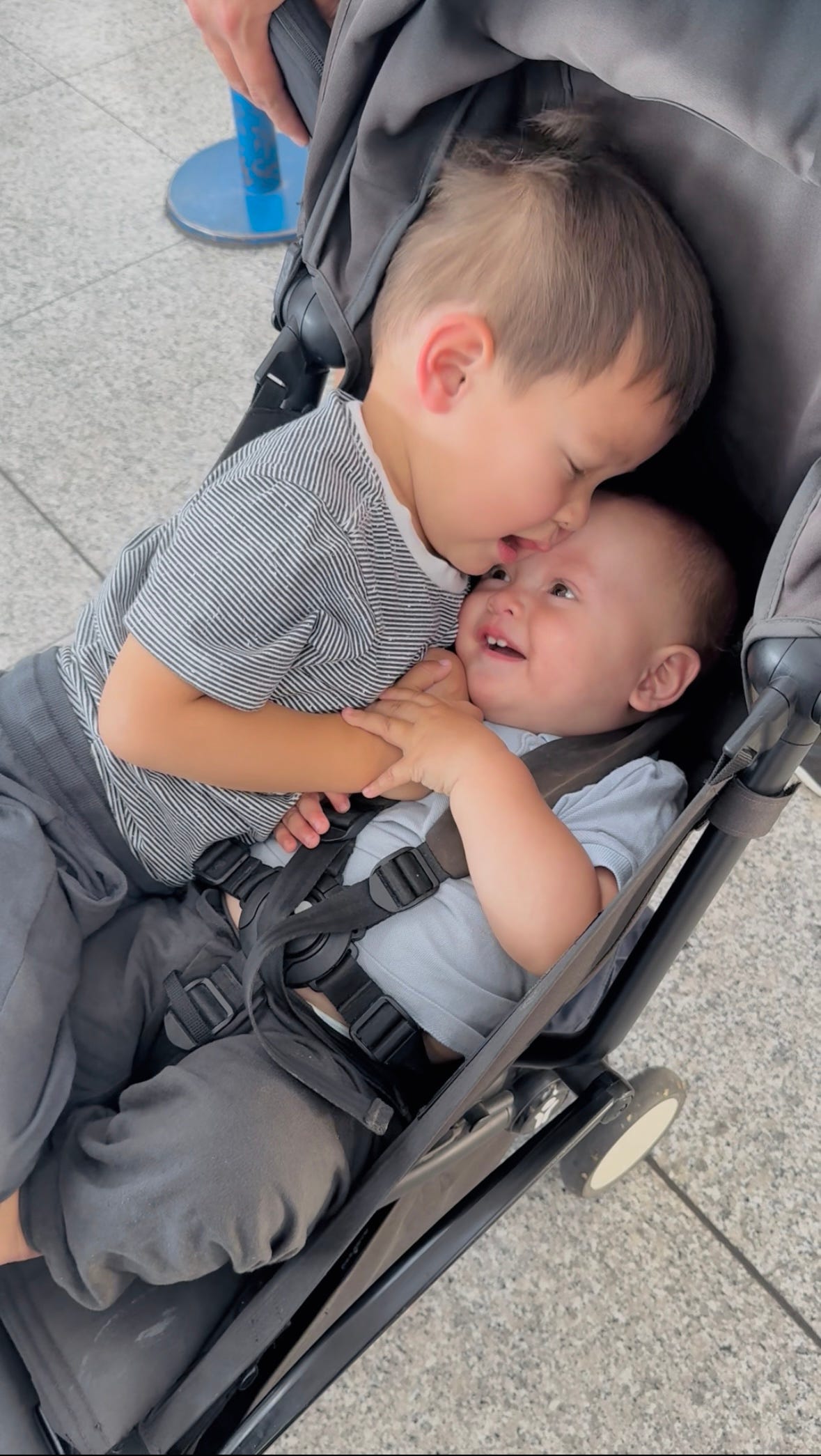I’m Not Proud of This Moment. But I’m Sharing It Anyway.
When your child’s trigger meets your own: a parenting story.
Since my family and I landed back in San Diego after several weeks of traveling, something’s been resurfacing in our home that I thought we had already moved through.
Matteo, my three-year-old, has started hitting his little brother again. And yes, I can appreciate that it’s somewhat normal at this age. Developmentally, toddlers don’t yet have the full capacity to process big emotions or express them in healthy ways—so hitting sometimes becomes the outlet.
Still, we’d made so much progress. It felt optimistic that we were through it. But lately, the pattern has crept back in. And with it, I’ve felt my own frustration and anger begin to simmer beneath the surface.
It usually happens fast. Matteo hits Lucas. I raise my voice and tell him to stop. But what I’ve been noticing lately is a different kind of reaction. The moment I correct him, Matteo immediately covers his face in shame.
That moment hits hard.
Because as soon as I see his shame, I feel mine. The inner critic gets loud.
I should know better. I teach this work. I understand how shame reinforces the very behaviors I want to break—and yet, there I am, caught in it.
And to others, it might seem harmless: a mom getting upset when one child hurts another. But here’s what I’m realizing is actually happening underneath.
What Matteo is internalizing isn’t just “hitting is wrong”—it’s that feeling angry is wrong. He’s too young to know the difference between behavior and emotion. So instead of learning to express his feelings in a healthy way, he starts to shut them down entirely.
And that’s not what I want for him. Because the truth is — Matteo is also a loving big brother. These moments of hitting don’t reflect who he is—they’re just signs of feelings that need better guidance and support.
But how I know this is less about Matteo and more about my inner child… is how activated I get in these moments. You see, I’m also a second-born. I relate deeply to Lucas—the one who’s expected to hold more and take up less space.
So when I see him get hurt, it’s not just maternal instinct that kicks in. It’s a protective part of me that remembers what it was like. And when that part takes over, I’m not parenting as an adult, rather as my inner child. And this is how we keep unhealthy patterns cycling through generations.
To witness and talk about this experience is confronting. But I also see it as an invitation and a lesson worth sharing.
You see, what I’ve come to trust is that awareness is everything. Truly—it's 70% of the work. When we can see the pattern, we can start to shift it. When we recognize who in us is responding, we can meet that part with compassion and create space to choose differently.
That’s where I am at this moment as I write this post.
Learning how to hold boundaries around behavior—without making the emotion wrong. Learning how to support my kids through their full emotional range—while, and not to mention, by staying anchored in mine.
I don’t have it all figured out (do any of us, really — when it comes to parenting?). I’m still in it. But I do know this: real change begins with awareness. And that is more than enough for now.
If you’re a seasoned parent and you’ve walked through moments like this, I’d love to hear what helped you. How did you meet those moments in a way that was supportive of you and your kids?
With love,
Anne





